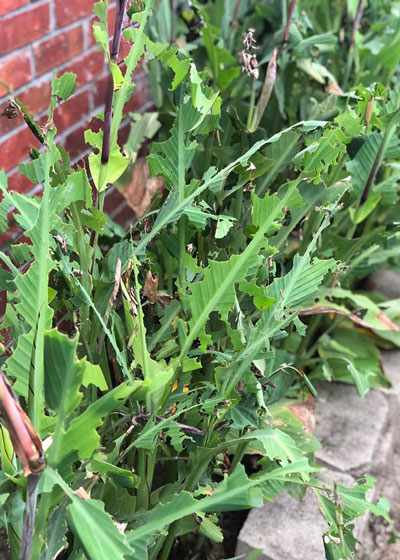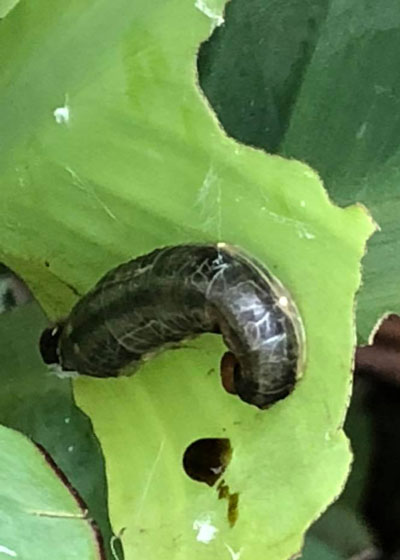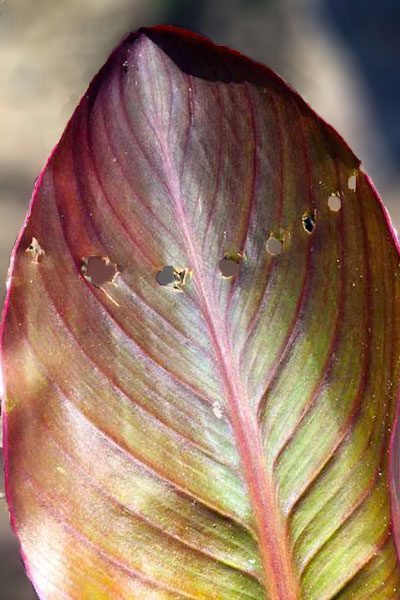Question of the Week Number 2: October 11, 2018
“What insect did this to my cannas, and what can I do to stop it next year?”
When I posted my Garden Tip about armyworms attacking bermudagrass on Facebook a few days ago several people replied that their cannas had been eaten up by the worms, too.

Damage of canna leafrollers to a once-lovely bed. Photo courtesy Roger Musgrove.
Roger Musgrove, however, posted a horrific scene of total devastation of his own cannas and correctly identified the culprits, even to the point of supplying a close-up photo of one of them. He gave me permission to share them with you today – thanks, Roger!

Caught in the act, this canna leafroller is feeding actively. Don’t you wonder how the adult skippers find our plants so efficiently! Photo courtesy Roger Musgrove.
How to deal with canna leafrollers…
This insect is difficult to prevent and even harder to control. My advice has always been to keep a close eye out for early signs of their presence and deal with them immediately. Sometimes you do so by pruning out the rolled up leaves. Or you may be able to mash the eggs before they hatch.

Earlier in the season you will see rows of holes when a leaf finally unfurls if leafrollers have been wrapped up within it.
Systemic insecticides are an option, either as a soil drench or as sprays applied along with spreader-stickers to help hold the sprays on the waxy leaf surfaces.
I always clean up all debris at the end of the growing season and send it off with the trash. It makes no sense to leave the debris in place as an overwintering site for the pests.
Here are a couple of excellent reports. First, one that explains both species of canna leafrollers. It’s from the Galveston County Master Gardeners Program. Click to see it.
And finally, this scholarly report from the University of Florida suggests B.t. (Bacillus thuringiensis). You might be interested to see the adult skipper of this type. It’s an attractive little insect.
